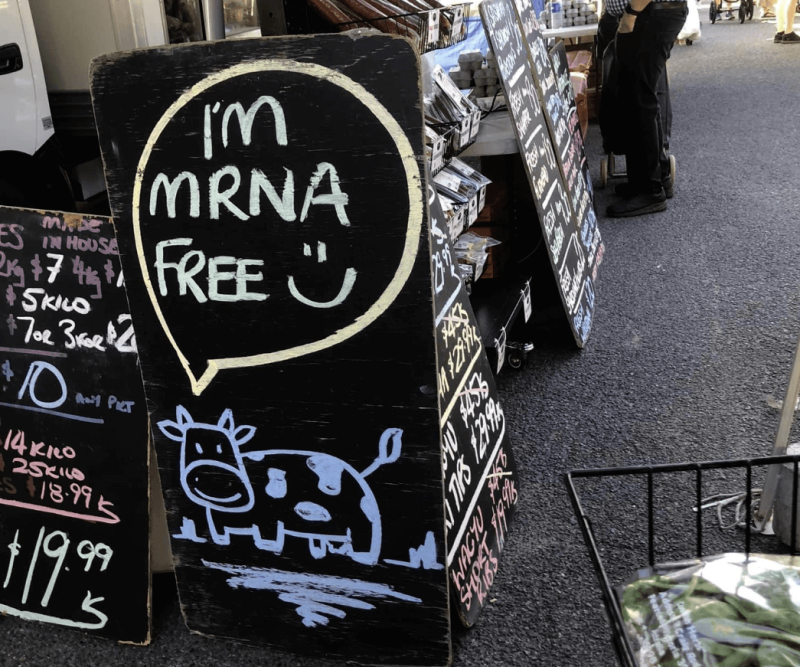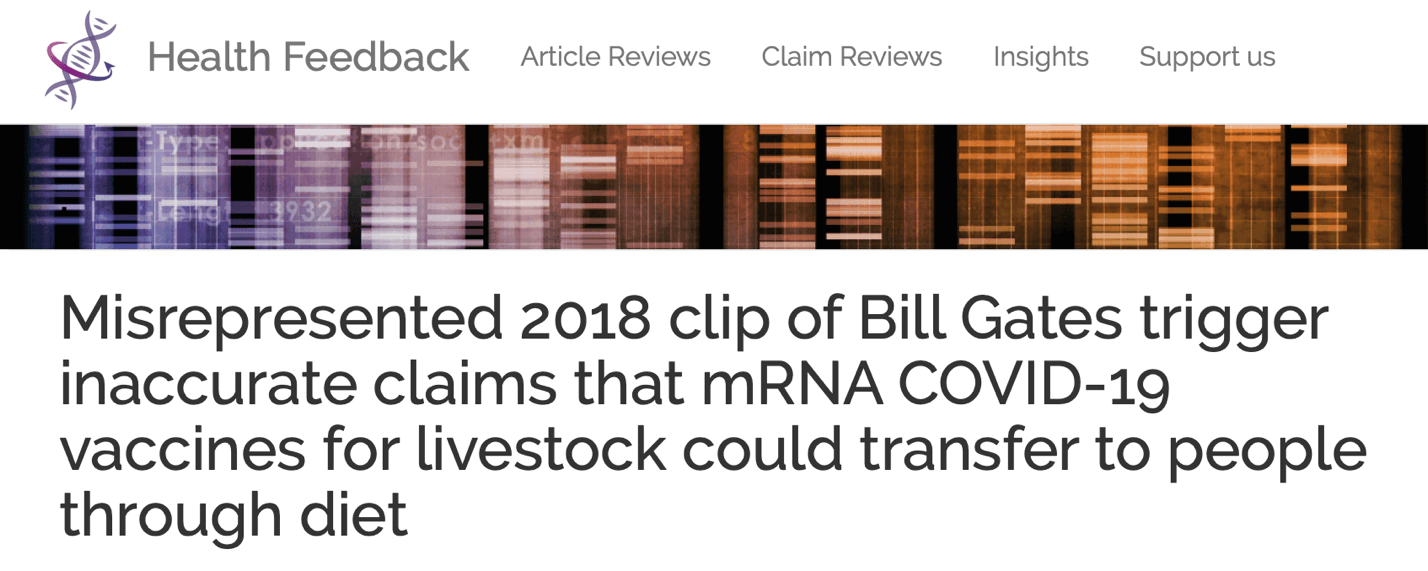The rapid development of safe and effective vaccines against SARS-CoV2 demonstrated the agility and efficacy of mRNA vaccines. The knowledge gained and flexibility to quickly develop new vaccines is now being applied to a slate of other infectious diseases, and quickly after their detection in a population.
This protection does not have to and should not stop at humans. The vast majority of vaccinations are developed for use in non-human animals, namely livestock. The advent of mRNA vaccines provides a dramatic new way to improve animal health and husbandry, heighten biosecurity, and control food costs. It’s a win-win for consumers and farmers who will benefit from higher profits by raising healthier animals.
But like any push of progress, these promising technologies have hit resistance from a fervid movement hatched from this amalgam of biotechnology and vaccine rejectionists. It seeks to arrest the use of potentially valuable preventative and therapeutic tools that could revolutionize veterinary care and improve animal welfare.
Origins
The internet’s pseudoscience conduits have found fertile fear turf in the prospect of mRNA animal vaccination. Although mRNA vaccines are decades in the making, misleading claims exploded on the internet and social media during the height of the COVID pandemic. Scientists, doctors and the media tried to dampen the hysteria, often with little success.
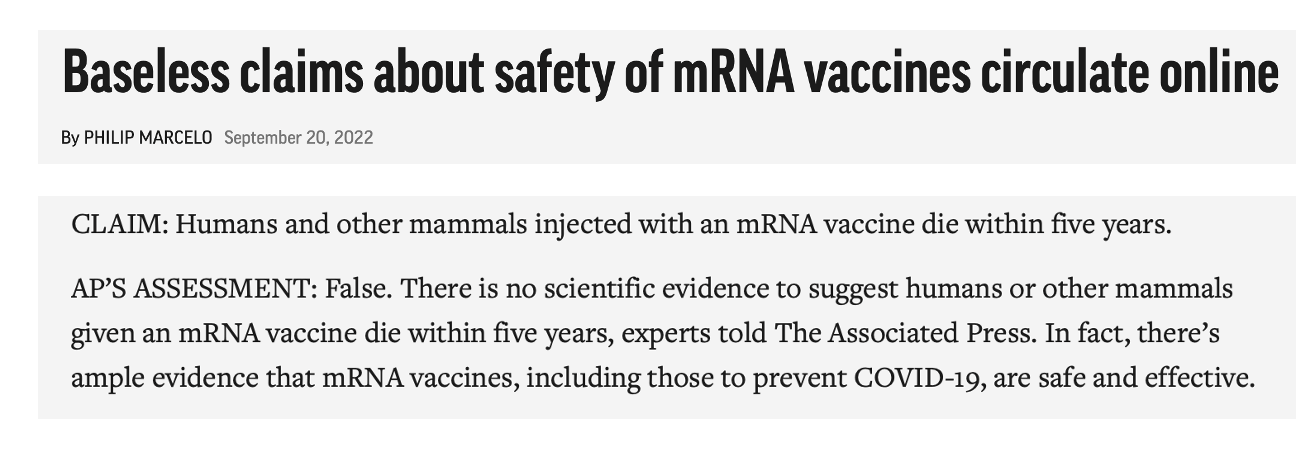
The outrage has not totally receded, despite their obvious success. It remains so thick that various legislation was proposed last month in Missouri that would bar or dramatically restrict their use in both humans and animals. Missouri HB 1169, sponsored by Republican state Rep. Holly Jones, aims to label meat from mRNA-vaccinated animals as a “Gene Therapy Product”.
In Missouri, where vaccine hesitancy is common, the bill is likely to be approved. Social media’s misinformation machine is pushing across-the-board mRNA restrictions, including on animals.
“It’s the biggest story in American history,” writes Conservative Review:
What is the way to ensure that mRNA gets into everyone’s body, even those smart enough to reject the injections? The industry has been pushing to place mRNA shots into cattle and other food, and such an effort has already been fast-tracked for research and approval in Australia. … Are we going to allow our life and liberty to continue to hang by a thread with no reforms?
The dominant theme, propagated on Rumble and elsewhere, is that consuming meat from a vaccinated animal is a back-door way to install the vaccination and its associated microchips in the vaccine-hesitant. Damn you Bill Gates.
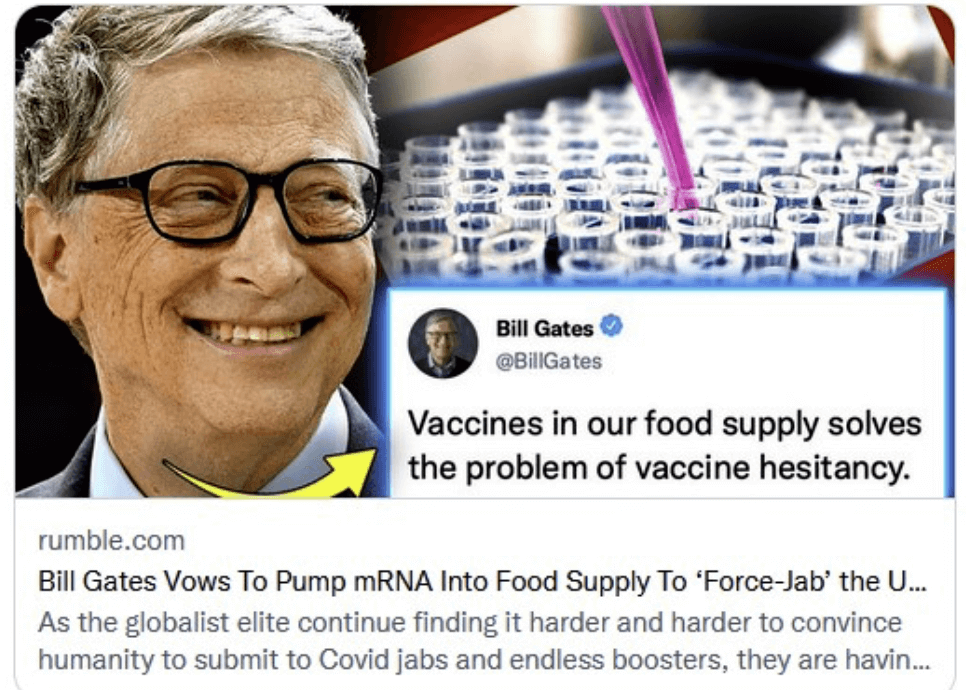
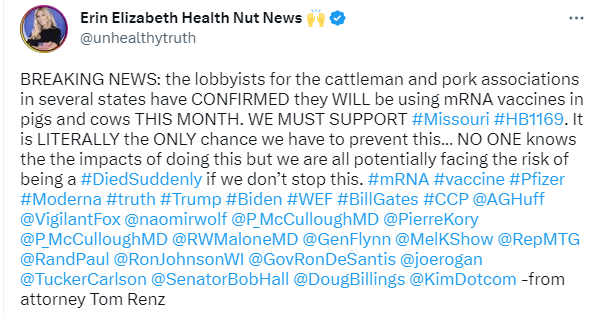

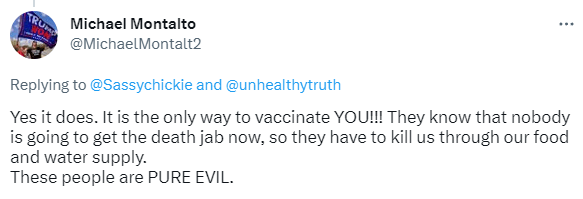

Scientists and responsible health sites have responded to the misinformation outbreak, but it’s an uphill battle.
Animal vaccines need to be developed quickly
Despite the internet backlash, there is tremendous need for effective anti-virals, and mRNA vaccines fit the bill. First detected in 2018, African Swine Fever Virus wiped out 225 million pigs, fifty percent of China’s hog population, causing shortages and economic hardship for farmers. Almost 25% of the global pig population died of ASF from 2018-19.
Many animal populations are in danger. Marek’s Disease is a highly contagious herpesvirus in chickens that can sicken an entire flock. Porcine Reproductive and Respiratory Syndrome (PRRS) affects domestic pig populations, costing the industry almost a billion dollars per year. We all have heard of the tens of millions of chickens that were lost to avian influenza, driving up egg prices in 2022.
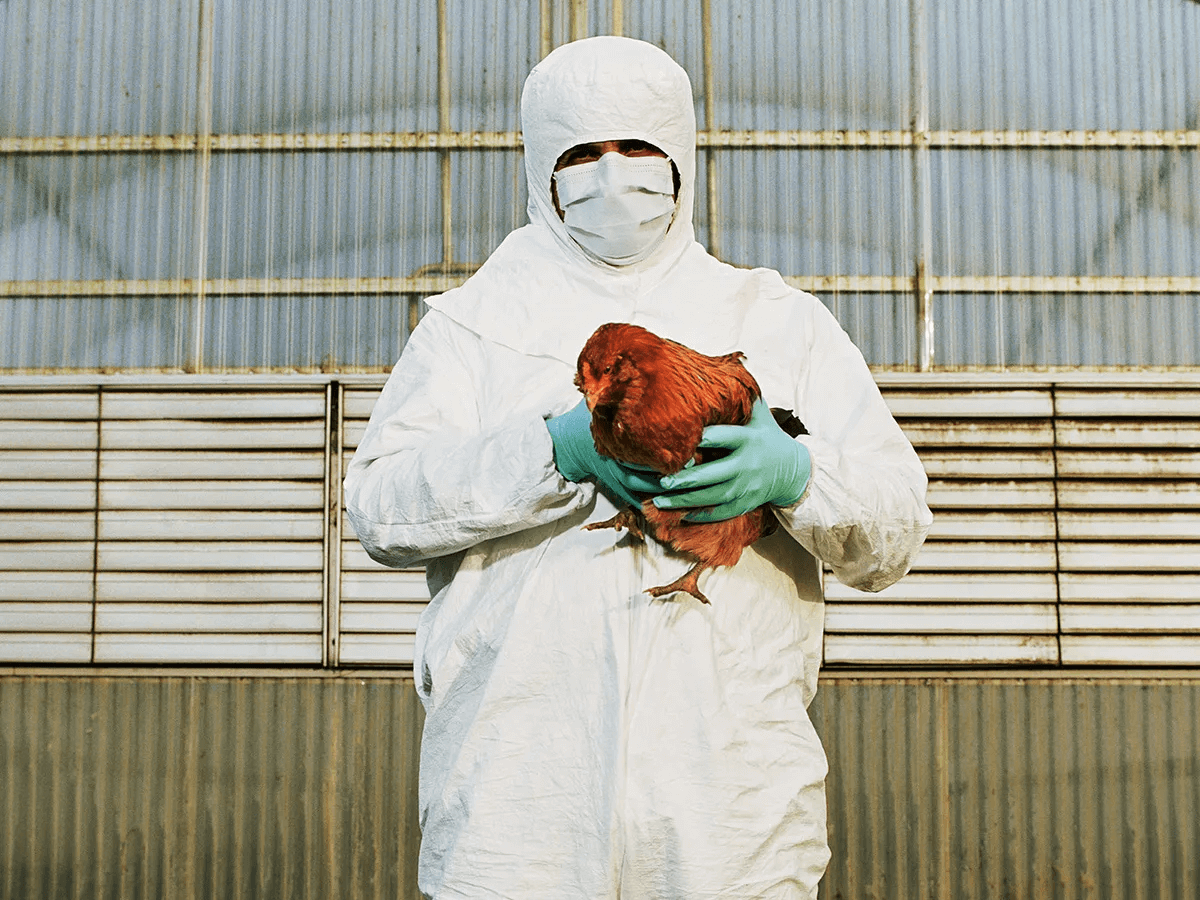
Aside from diseases that affect animals, diseases like rabies, hepatitis E, and avian influenza are all passed to humans from infected animals. Current data strongly indicate that Ebola, SARS, MERS and SARS-CoV2 also emerged from animal intermediates. Strategic vaccination of wild animal repositories may have a significant effect on quelling future zoonotic outbreaks.
While there is clearly a need to vaccinate both domestic and wild animal populations, the problem is that current animal vaccines are manufactured using traditional technologies, such as inactivated viruses, live attenuated viruses, or protein subunits representing disease antigens to stimulate immune response. It can take years in even the best of circumstances to develop new vaccines.
The mRNA vaccines circumvent these onerous manufacturing steps, making them faster and far less expensive to develop and deploy. Identification of new variants can trigger quick adjustments in mRNA vaccine sequence to address rapid viral evolution. There is no question that there is tremendous potential for mRNA vaccines in resolving animal health issues.
What’s at stake?
Human encroachment into natural areas, the harvesting of wild animals for food, and the density of domestic animals in production all set the stage for rapid propagation of new viral threats. Fortunately, the new mRNA technologies provide a fast way to respond, limiting impacts on biosecurity, food prices and even animal suffering.
The technology is not gene therapy as Missouri politicians and many vaccine rejectionists believe. The idea that injecting transient genetic information into a pig or cow can somehow reprogram the genetics of a human that eats a pork chop months later is simply ludicrous. If such things were possible we could use that technology to erase sickle cell disease, cystic fibrosis, or dozens of other genetic diseases.
But the anti-vaccine disinformation machine has fired up, belching forth deceptive messaging that ultimately will challenge good technology from reaching the farmer’s field or remote bat cave.

The perpetrators on the ideological left and right that peddle false fears around mRNA vaccines in animals are the same ones telling us that GMO crops are killing us, COVID19 is a hoax, and benign herbicides are poisons. This nonsense is now being embraced in the higher echelons of state governments, giving further credence to bankrupt ideas and awful science.
Why should we listen to them now?
Kevin M. Folta is a professor, keynote speaker and podcast host. Follow Professor Folta on Twitter @kevinfolta

